Environmental awareness Science Worksheets for Ages 4-7
12 filtered results
-
From - To
Our Environmental Awareness Science Worksheets for Ages 4-7 offer a hands-on, engaging way for children to explore and understand their surroundings. These printable activities are designed to teach young learners about the environment, conservation, and the importance of protecting our planet. With colorful illustrations and interactive tasks, kids develop critical thinking and observation skills while fostering a love for nature. Perfect for classroom and home use, our worksheets inspire curiosity, creativity, and caring attitudes toward the environment at an early age. Equip your little ones with the knowledge and values needed to become responsible future stewards of Earth.
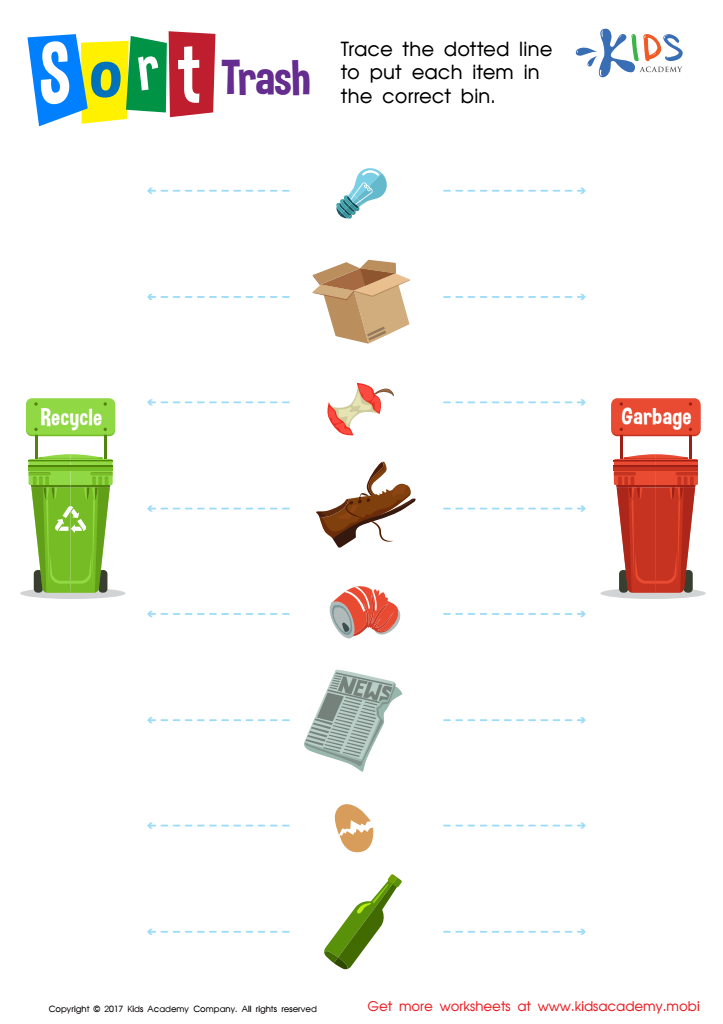

Trash Sorting Worksheet
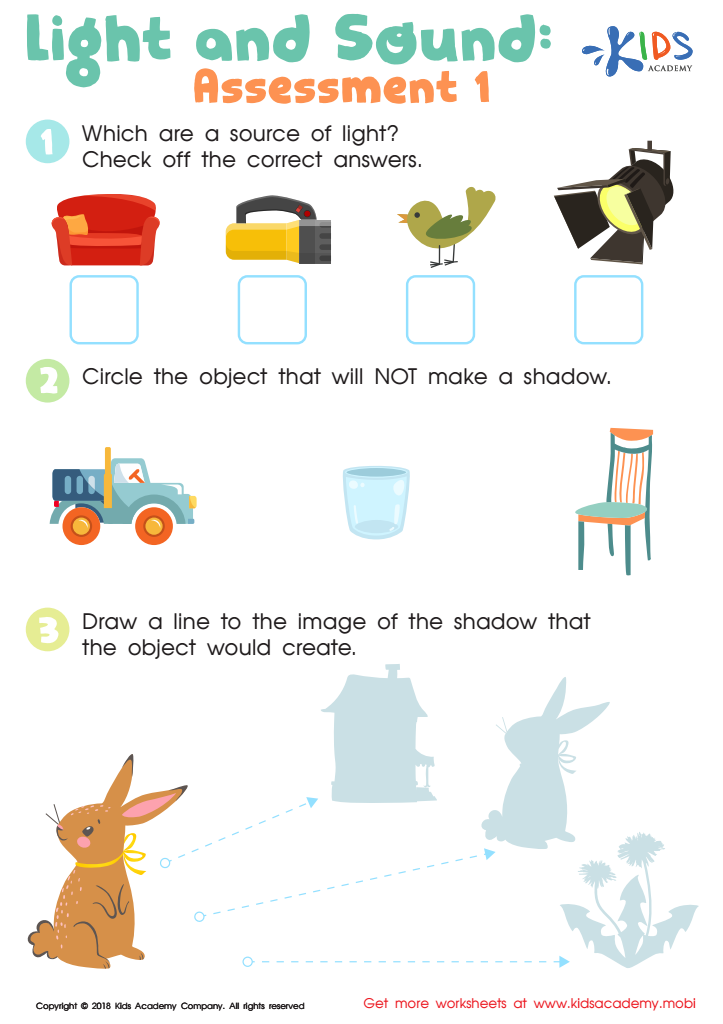

Light and Sound: Assessment 1 Worksheet
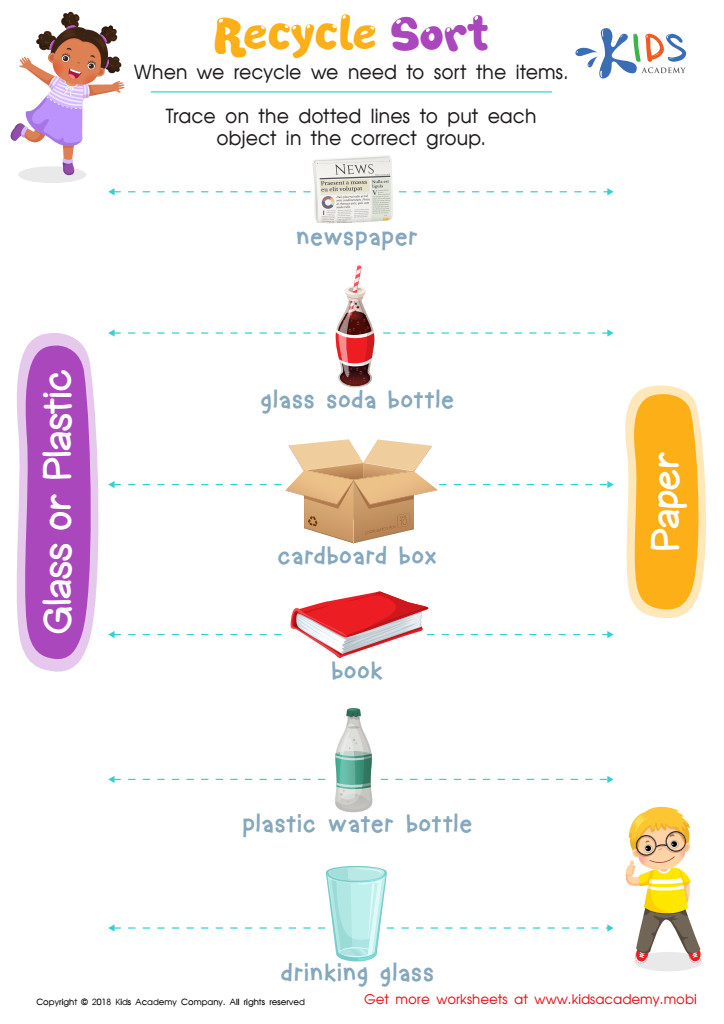

Recycle Sort Worksheet
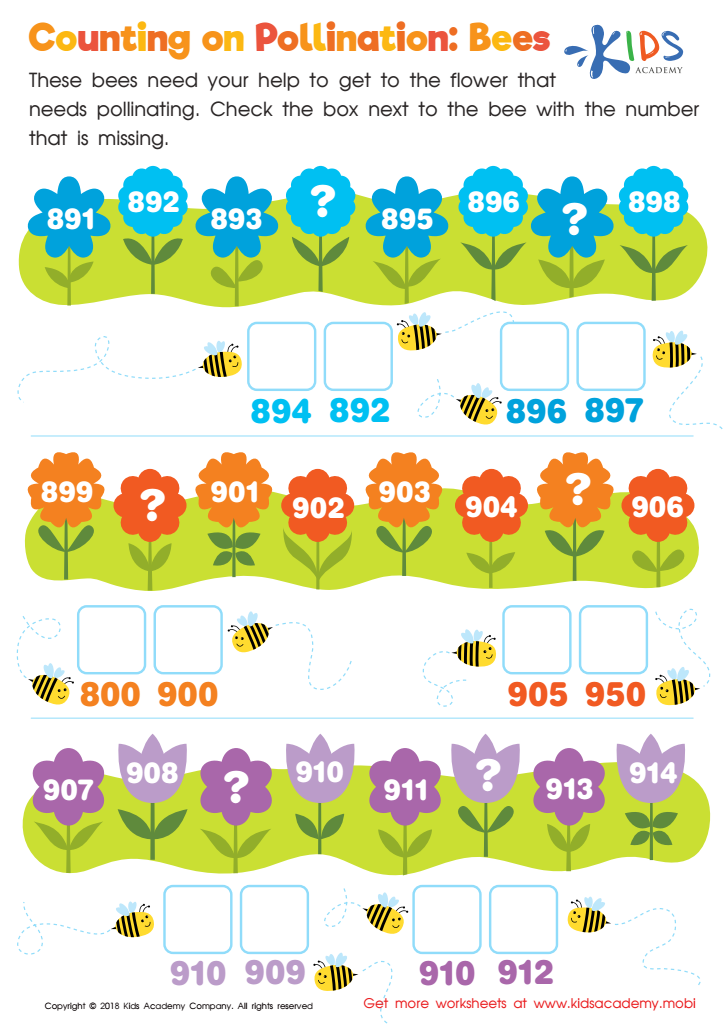

Counting on Pollination: Bees Worksheet
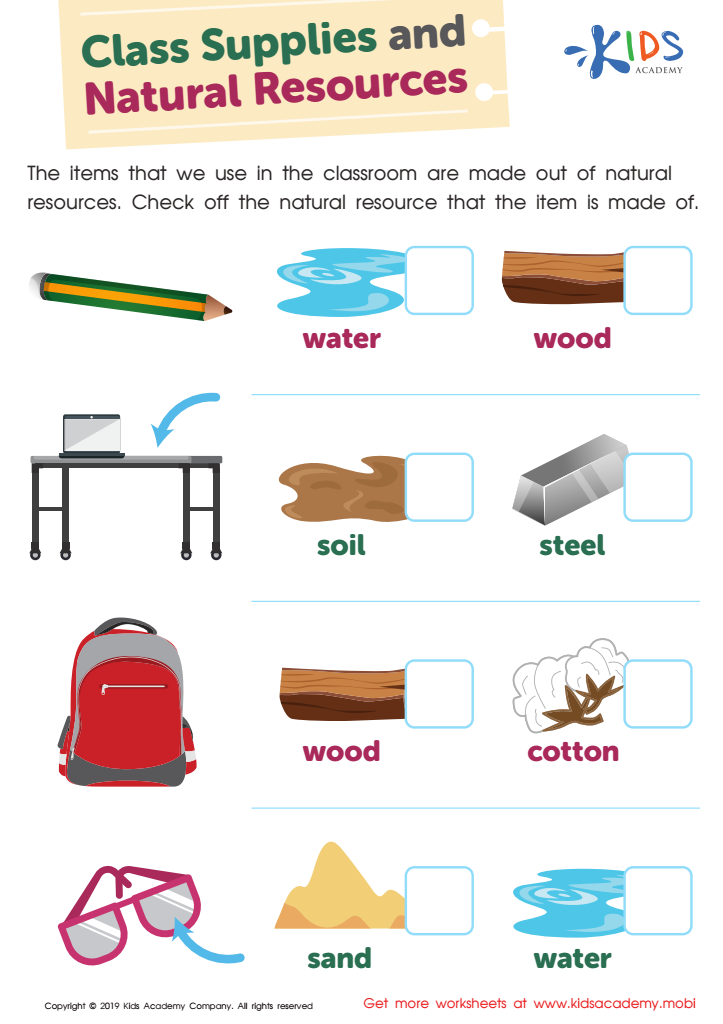

Class Supplies and Natural Resources Worksheet
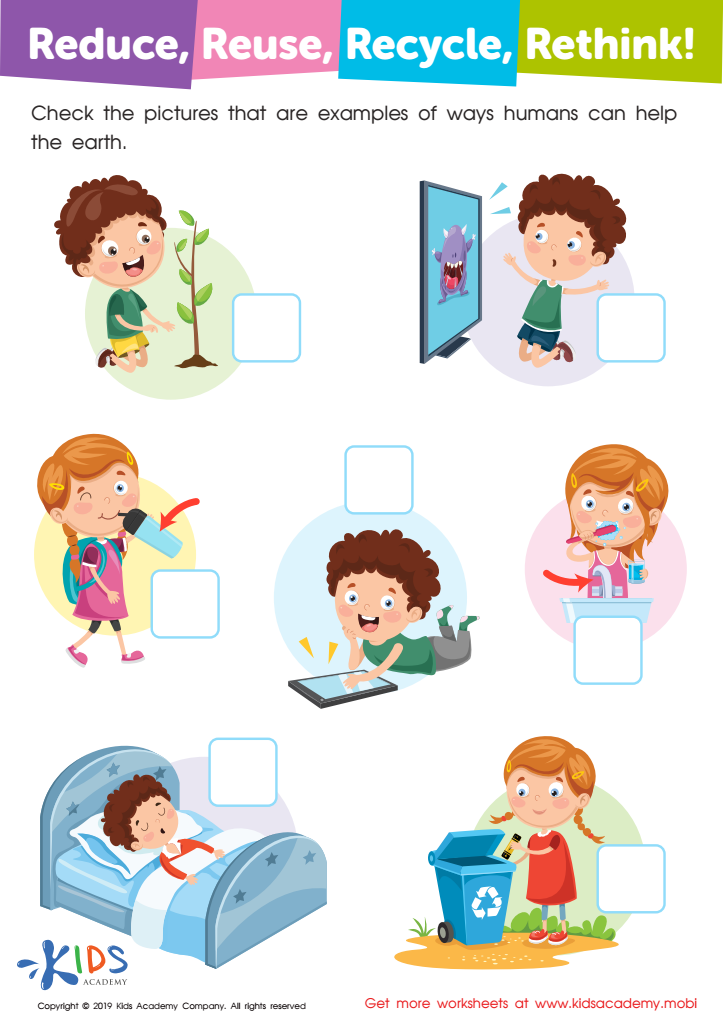

Reduce, Reuse, Recycle, Rethink Worksheet
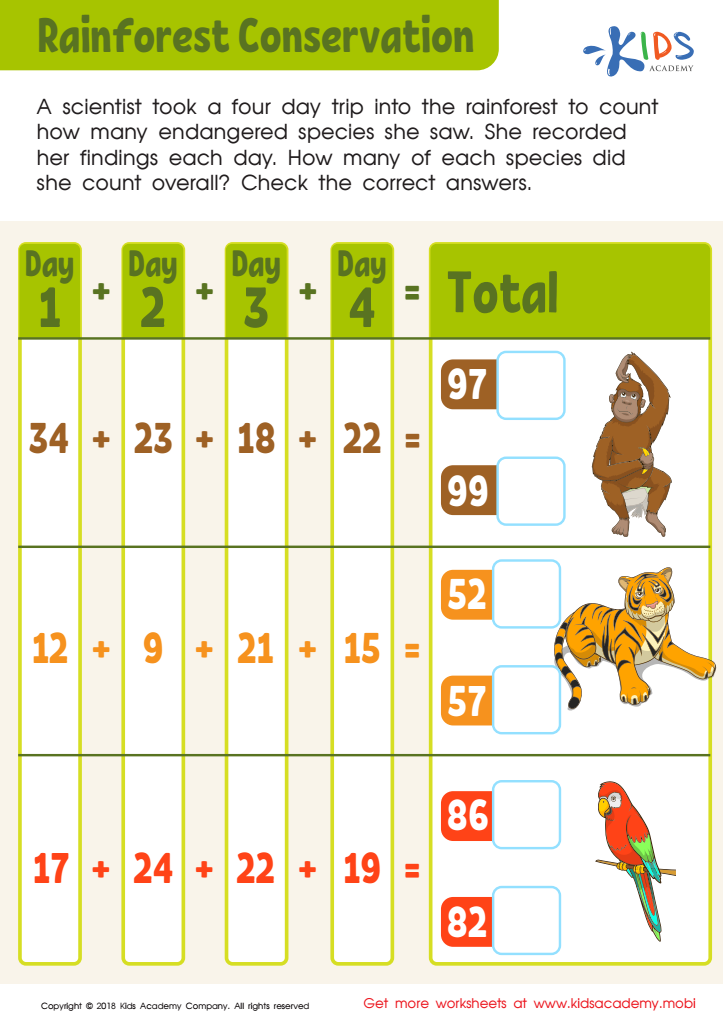

Rainforest Conservation Worksheet
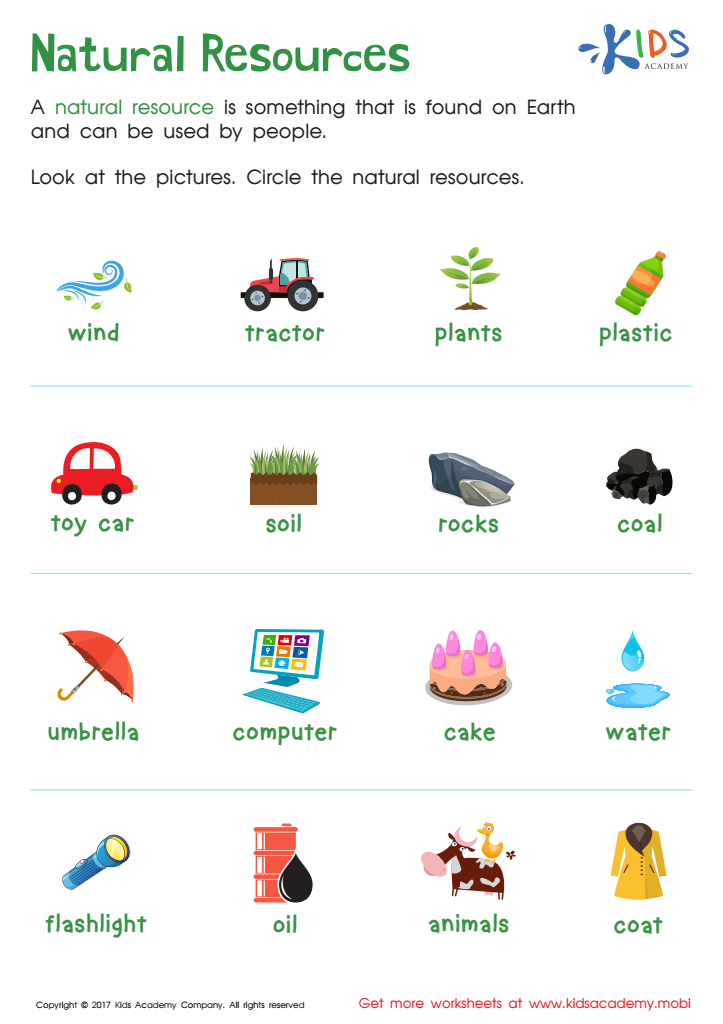

Natural Resources Worksheet
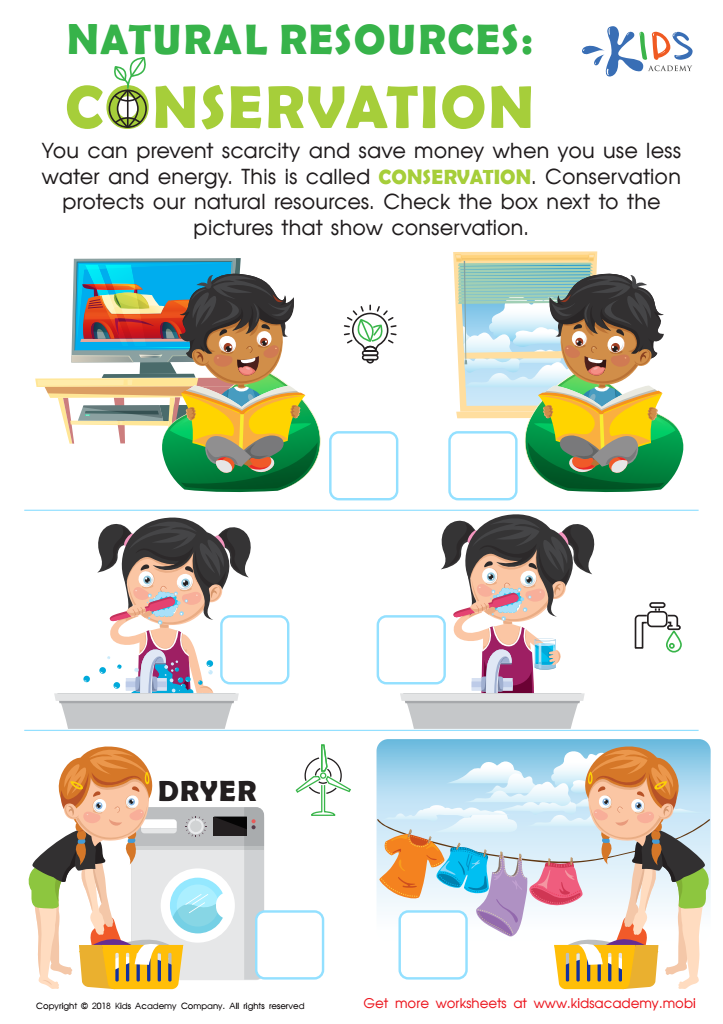

Natural Resources: Conservation Worksheet
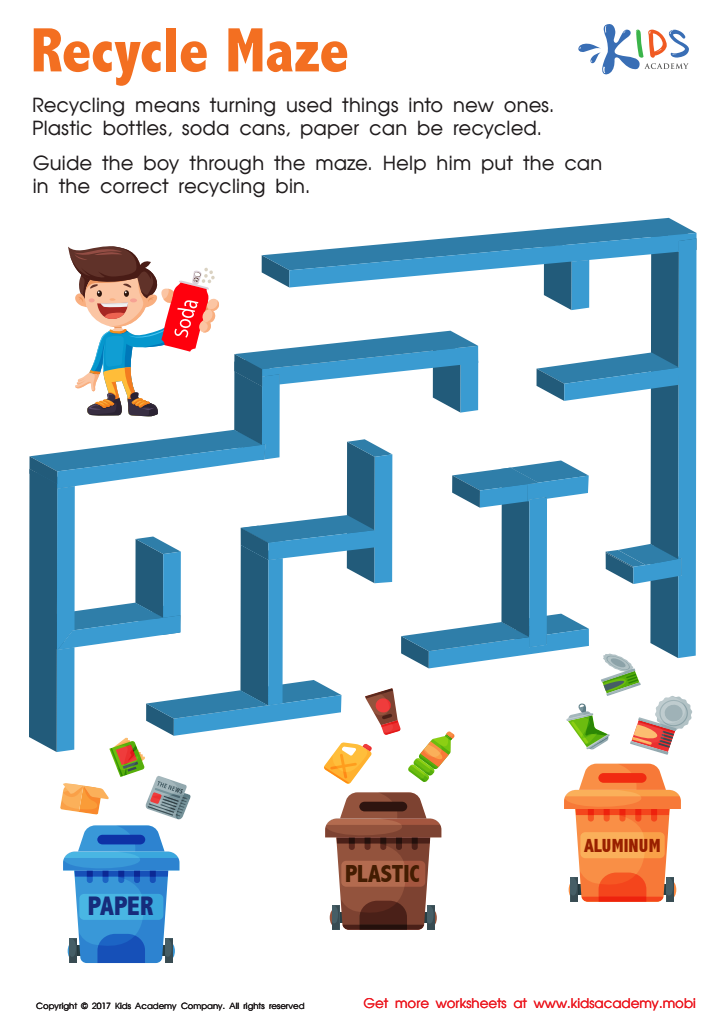

Recycle Maze Worksheet
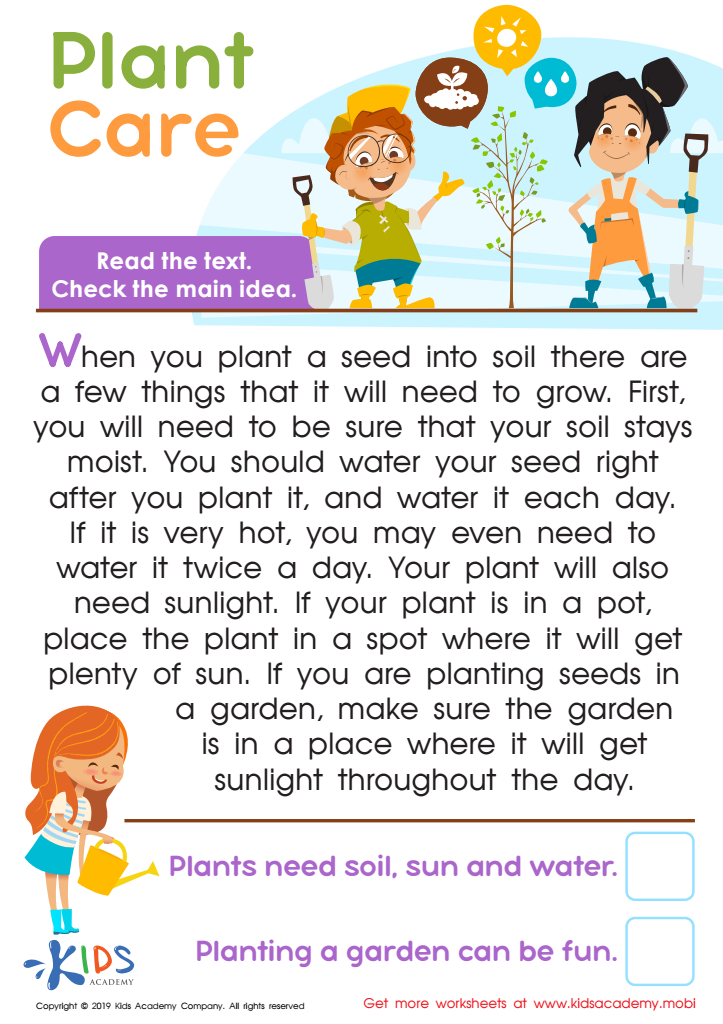

Plant Care Worksheet
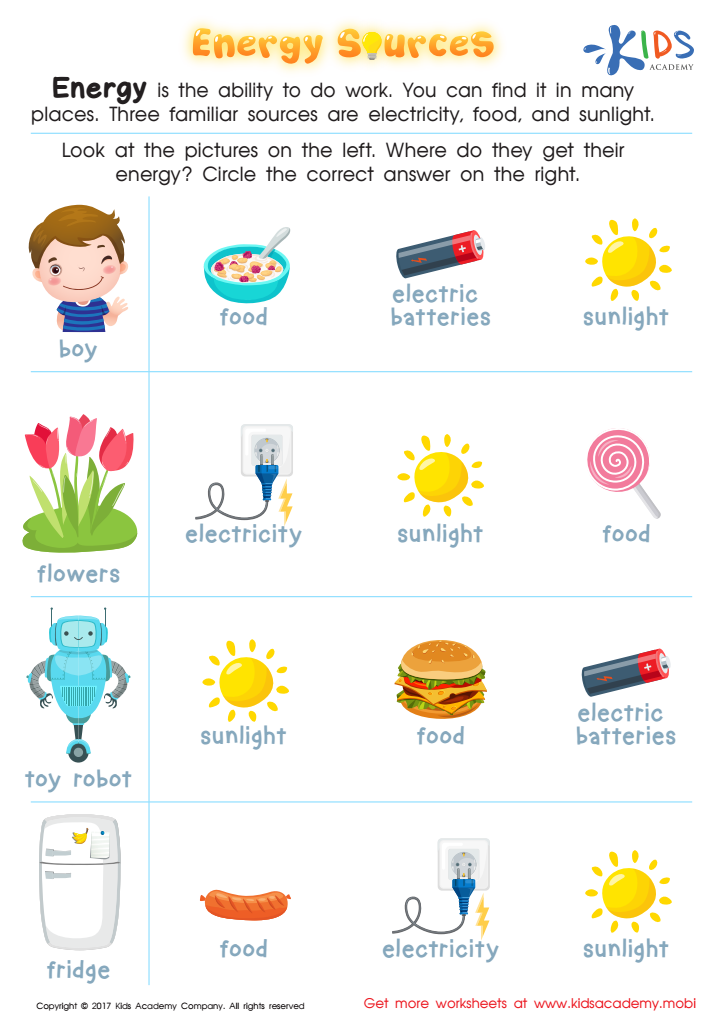

Energy Sources Printable
Environmental awareness at a young age is crucial for shaping responsible future citizens who respect our planet. Teaching children ages 4-7 about the environment helps cultivate curiosity, empathy, and responsibility towards nature. At this developmental stage, children are particularly receptive to new ideas and eager to explore the world around them.
Instilling environmental values early can lead to lifelong sustainable habits. For instance, when a child learns the importance of recycling or conserving water, these practices become second nature as they grow. Such habits not only benefit the environment but also instill a sense of personal responsibility and community stewardship.
Furthermore, understanding the impact of human activities on the planet nurtures important scientific and critical thinking skills. Activities like exploring the outdoors, gardening, and learning about various ecosystems stimulate sensory experiences and foster a love for learning. These activities also illustrate the interconnectedness of life, helping children appreciate biodiversity and the delicate balance that sustains it.
Teachers and parents play pivotal roles in shaping children’s perceptions and attitudes. By integrating environmental science into early education, they lay a foundation for informed citizens who are equipped to tackle global challenges, such as climate change and environmental degradation, with innovative and compassionate solutions. Investing in environmental awareness for young children is an investment in a sustainable future for all.

 Assign to My Students
Assign to My Students





















